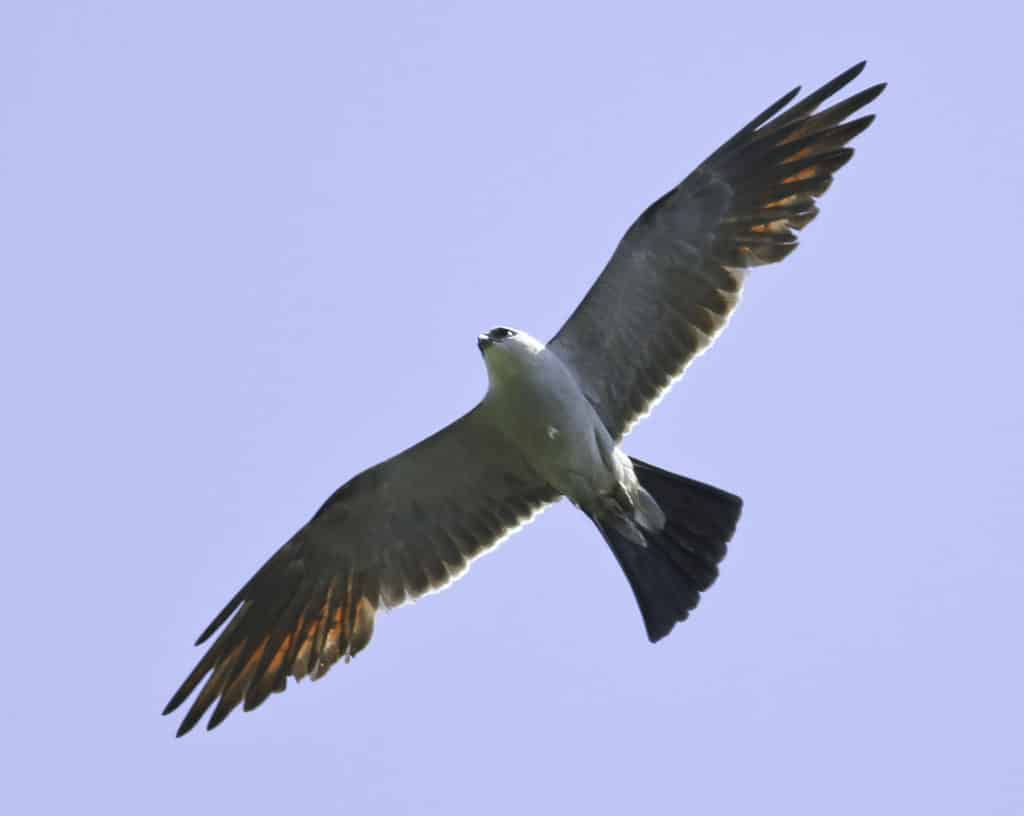Creature Feature

The Expected Arrival of an Infrequent Visitor
By Wayne Bierbaum
As the ground finally warms, more than plant life will start to awaken. This summer is the 17th anniversary of the Brood IX 17-year cicada. That brood may affect southern Maryland, Virginia, and North Carolina. Next summer, central Maryland, Delaware, and eastern Pennsylvania will be affected by the largest group, Brood X.
The cicadas are food for many animals—even bald eagles have been seen munching on them. When the cicadas arrive en masse, birds that do not normally visit our area will arrive as well; sometimes they may even nest out of their usual range.
The Mississippi kite is one such bird. They are light long-winged birds who spend much of their lives in flight. The name kite was given to a group of birds that float on light winds. They are quite agile in the air, catching and eating insects, drinking, exchanging food, and courting in flight.
The Mississippi kites are a little bigger than a crow and have light gray bodies and heads, dark tails and dark mascara-like rings around their eyes. Usually, they live south of North Carolina and west to Texas but when the last Brood X cicadas arrived in 2004, groups of kites were seen winging over Maryland eating the flying cicadas. They were present in Maryland during their usual nesting season and may have nested here.
They have an interesting nesting behavior. An adult mated pair will allow an immature bird, male or female, to be a nest helper. The helper helps build and guard the nest but also helps feed the young. They have one brood per year. In the winter, they disappear to warmer climes. Cornell Ornithology states their South America wintering areas are undocumented but they have been seen migrating through and living in all types of habitats, even in and around people.
They seem very adaptable and are not at high risk of a population collapse. They just need some trees to nest in and flying insects to eat. Hopefully, we will be able to see these aerial acrobats this summer and also next summer.
